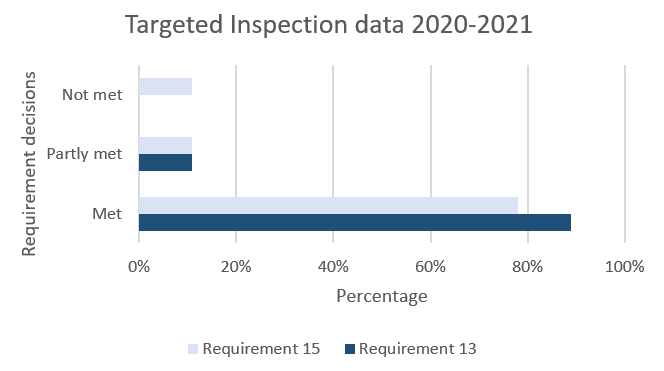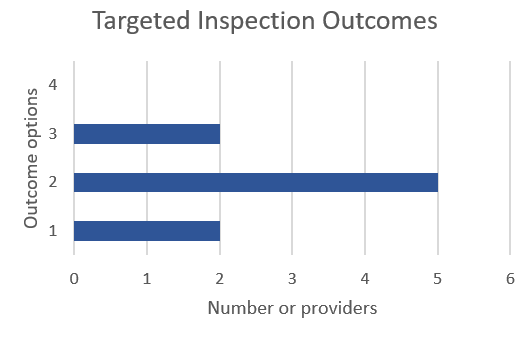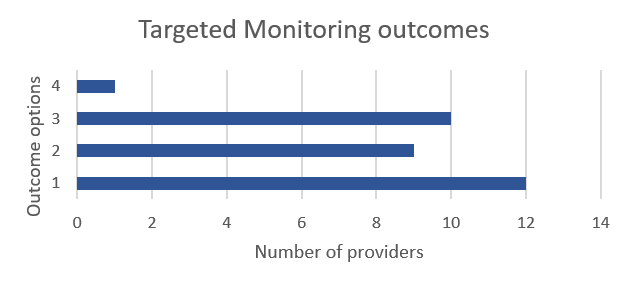View Contents
Quality assuring education and training during COVID-19
13 December, 2022
In March 2020, the Government announced a national lockdown due to the COVID-19 pandemic, which impacted the whole population, including patients, students, education providers and the GDC.
As a result, there were significant limitations in delivering routine dental care and the practical training and experience of dental students and their clinical training was severely impacted.
Given these circumstances, we worked closely with education providers and key stakeholders in education and training to understand the areas of concern and risk to programme delivery. We also sought to identify their plans to mitigate these risks so that students graduating in 2020 would meet the minimum standard of practical training and join the GDC register as safe beginners. We developed a risk-based process to enable targeted QA activity to be carried out to give assurance to patients, the public and the GDC that despite the challenges of the pandemic, the quality of new registrants remains the same as any other year. This demonstrated that our QA function can be agile and responsive to unforeseen demands.
Risk-based QA activity in relation to COVID-19
Evidence-gathering exercises in the form of surveys of education providers took place in March and July 2020 to understand their initial plans for graduating students and subsequently, how students were actually graduated.
We revised planned inspections for 2019/20 academic year to focus on areas of priority and postponed others where there was lower risk.
Once assured that the 2019/20 graduating cohort were safe beginners, attention turned to preparing for the 2020/21 cohort.
In November 2020, the GDC conducted virtual meetings with all education providers to understand their present specific challenges and mitigations for the forthcoming academic year. This highlighted that we needed to focus on BDS and Hygiene and Therapy (HT) programmes as areas of greatest risk and concern as the pandemic had impacted on the experience of their students most significantly. It also demonstrated a significant variation of circumstances and impact across providers and the UK nations.
In January 2021, a further survey was shared with education providers to gather specific information to inform our QA processes and timescales for 2020/2021.
Targeted monitoring activity
Taking into consideration previous feedback received from stakeholders, we developed a targeted process for conducting QA activity of BDS and HT education programmes. Between March and August of 2021, we carried out targeted monitoring of 32 BDS and HT programmes, leading to 10 inspections. We were assured with all programmes, except one, which was subject to a six-month extension to training. We plan to conduct monitoring of a further five programmes in Scotland during the academic year 2021/22.
The targeted monitoring focused on two specific Requirements within our Standards for Education (13 and 15) relating to the depth and breadth of experience expected and required of new graduates to ensure that they are safe beginners. Education providers were required to submit evidence against these standards as well as a declaration, confirming that the students would be at the level of a safe beginner at the point of graduation. The evidence returned was reviewed by the EQA team and Education Associates (EA). In conjunction with the Evidence and Research Team we developed a Decision Framework Assessment Tool which we used to help determine the level of risk associated with the programme. This tool enabled us to determine whether targeted inspection activity was necessary. Where necessary, we held calibration meetings to ensure consistency of decisions across the different providers.
Following targeted monitoring activity, the providers were informed of one of four outcomes:
1. Inspection not required.
2. Inspection not required but the programme should be subject to ongoing monitoring for assurance of safe beginner standard, including further information on student progression closer to graduation dates. Upon receipt a further decision to be made regarding an inspection or further monitoring.
3. Inspection required.
4. Extension to programme.
The chart below details the number of outcomes under each of the above categories:
Targeted inspection activity
Out of the 32 providers subject to targeted monitoring, 10 led to targeted inspection activity, which were focused on gaining assurance of the experience of final year students. The table below provides a breakdown of the 10 programmes subject to targeted inspection activity in the 2020/21 academic year:
| Targeted inspection activity | |
| Dentistry | Dental hygiene and therapy |
| 6 programmes | 4 programmes |
We decided that the outcome for these programmes, following QA activity, would be either ‘assured’ or ‘not assured’ that the graduating cohort would be safe beginners.
The chart below outlines the breakdown of data in relation to Requirements 13 and 15:

Following the targeted inspections, the 10 providers were informed of one of four outcomes which were ratified by the Registrar:
1. Assured - no further action.
2. Assured - further contemporaneous data or evidence requested to triangulate findings of
the panel.
3. Not Assured- programme extension with a detailed monitoring plan.
4. Not assured- removal of sufficiency or approval.

The outcome was higher than we had initially anticipated with 97% of final year BDS students in England, Wales and Northern Ireland graduating, by comparison to the anticipated 80-90%. We acknowledge and thank the significant efforts of all those involved to enable this.
Further targeted monitoring activity is planned for 2021/22 which relates to five Scottish providers who delayed graduation by one year:
| Targeted monitoring activity 2021-2022 | |
| Dentistry | Dental hygiene and therapy |
| 3 programmes | 2 programmes |
Meanwhile, we needed to ensure that DCP providers continued to provide us with assurance that their graduates would be safe beginners and a bespoke survey was delivered in May 2021. The analysis in June 2021 highlighted that there were no concerns with the current graduating cohort.
Further targeted QA work will continue in 2021/22:
- Phase Two: students from the 2020/21 cohort who did not graduate but intend to by the end of the 2021 calendar year.
- Phase Three: students in the 2021/22 graduating cohort.
Feedback received from education providers and the internal teams following Phase One have been used to refine the process for the second and third phase in the 2021/2 academic year.



 eGDC
eGDC